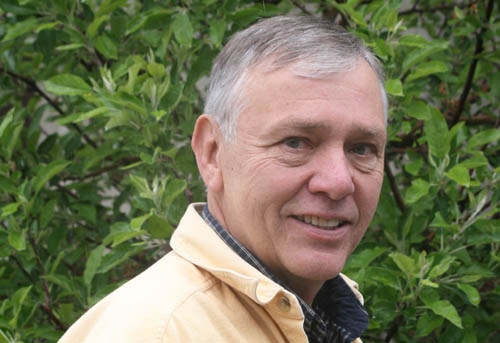
“There are many reasons to use native plants locally,” said horticulturist Harold Voorheis. He, along with co-presenters Jackie Lasater and Ben White, will discuss the virtues of planting natives in local gardens at the Thursday, May 16, Idyllwild Community Recreation Council’s Speaker Series.
As the title of their talk, “The Importance of Native Plants in Nature and in Your Garden” indicates, they will also talk about the benefits to the local ecosystem of native plants, long seasoned to this mountain, and the harmful effects of thoughtless introduction of imported or exotic plants.
“Indigenous plants are used to our climate, they have adapted to this environment,” said Voorheis. “They can survive a dry summer. By using native plants, you can save a lot of money on water and irrigation systems. You also don’t need pesticides or fertilizers. The [mountain] soil, as it is, is perfect for the native plants. There is no need to amend it.”
There are other benefits to the local ecosystem, said Voorheis. “Native plants invite local wildlife, wildlife that has adapted to the cover, protection and camouflage provided by our trees. It’s an ecosystem integrated over time, so beautifully organized, systemic, precise and so interdependent.” Voorheis and his co-presenters will also talk about the need to research before introducing non-native plants that could interfere with the already balanced ecosystem.
Voorheis admitted it’s a sensitive issue on the mountain and that sometimes people just want certain color balances. “There are very real consequences of our actions in what we plant. We’re sometimes careless about what we bring in, but with more education, there is more demand for native plants,” he stressed.
The presenters plan to discuss how planting natives also perpetuates the introduction of beneficial insects, the pollinators, predators and parasites that help balance the local ecology. Lasater and White will talk about new propagation techniques for native plants that don’t depend on burning. The Hill is part of a natural burn zone and certain plants have historically needed that cyclical burning to propagate. “They’ll also discuss edibles,” Voorheis said, “how native plants were long used by Native Americans as digestible and topical medicines and curatives.”
Voorheis explained there have long been proponents of native plants, like the Theodore Payne Foundation in the San Gabriel Valley (www.theodorepayne.org) and botanical gardens that feature native plants. “But the push, our push for this mountain, is to get the native out of the botanics and into the home gardens. There are organizations, plant societies, and even graduate school courses that stress native plant benefits.
“It’s the whole tear up your front yard concept,” said Voorheis who marveled at how in a Southern California climate zone, one that is often stressed for water, there continue to be lush front yards and exotic plantings that require extensive watering. “I think we’re often innately selfish people who just want what we want even if it is not good for the environment. You can do full front and back yards with just native plants, that require less care, water, pruning and require no pesticides to keep plants healthy.”
The presentation will be 6 p.m. Thursday, May 16, at Silver Pines Lodge and is cosponsored by the Idyllwild Garden Club. There is a free wine and cheese reception at 5:30. Both are free to the public.










